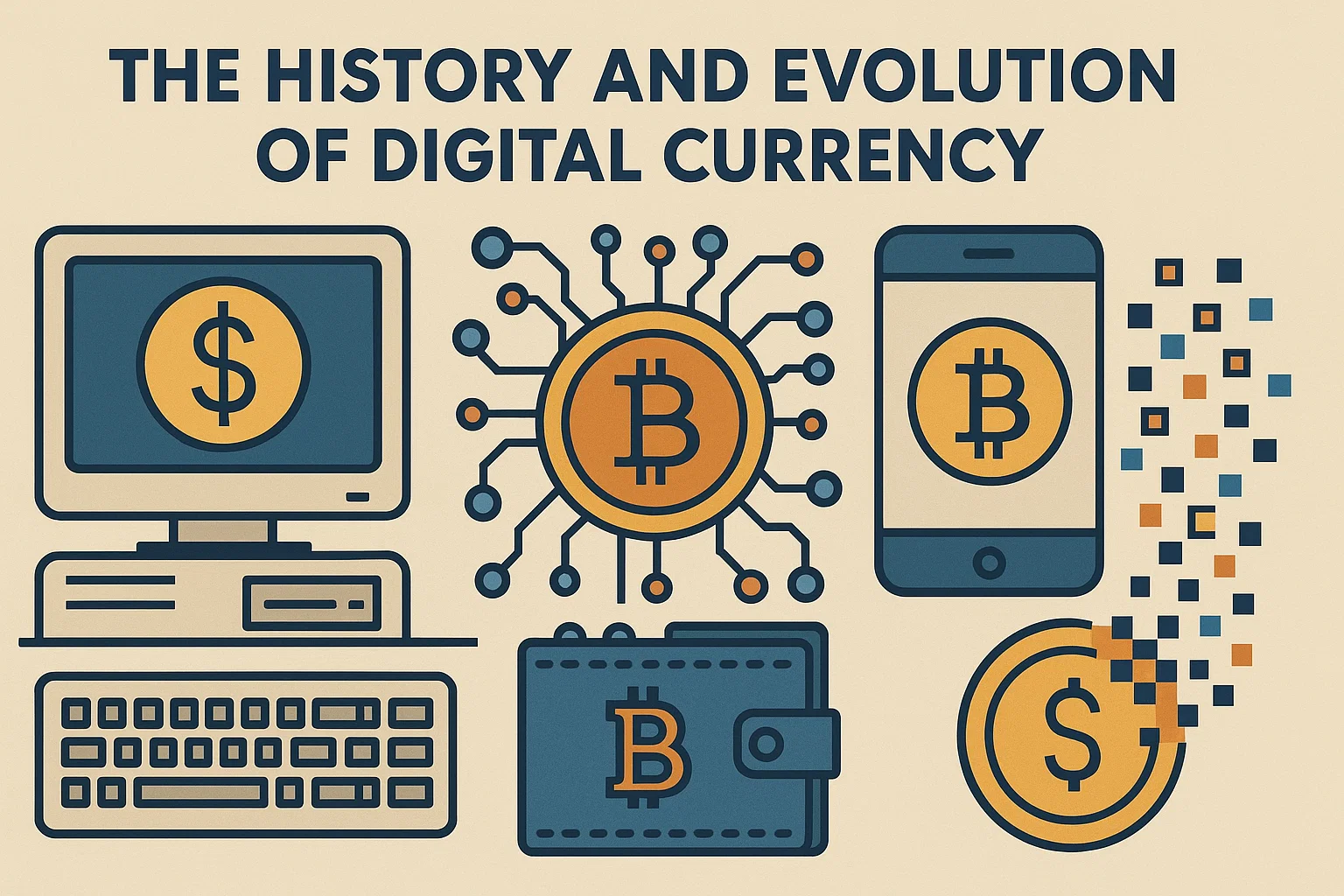The financial landscape has undergone a remarkable transformation over the past decade, with crypto coins emerging as one of the most revolutionary innovations in monetary history. Top Crypto Coins 2025 digital assets have captured the imagination of investors, technologists, and everyday people seeking alternatives to traditional banking systems.
From Bitcoin’s humble beginnings in 2009 to today’s diverse ecosystem of thousands of cryptocurrency tokens, the world of digital currency continues to evolve at a breathtaking pace.crypto coins is no longer optional for anyone interested in top crypto coins 2025 finance, technology, or investment opportunities. Top Crypto Coins 2025 decentralized digital currencies represent more.
Than just speculative assets—they embody a fundamental shift in how conceptualize money, ownership, and financial sovereignty. Whether you’re a curious beginner or someone looking to deepen your of blockchain technology and digital assets, this comprehensive guide will illuminate the essential aspects of and their growing role in our global economy.
What Are Crypto Coins
Crypto coins are digital or virtual currencies secured by cryptographic techniques, making them nearly impossible to counterfeit or double-spend. Unlike traditional fiat currencies issued by governments, these digital assets operate on decentralized networks based on blockchain technology—a distributed ledger maintained by a network of computers worldwide.
The fundamental characteristic that distinguishes crypto coins from conventional money is their decentralized nature. No single authority, government, or financial institution controls these currencies. Instead, they rely on complex mathematical algorithms and consensus mechanisms to validate transactions and maintain the integrity of the network. This peer-to-peer electronic cash system eliminates intermediaries, potentially reducing transaction costs and increasing financial accessibility.
Most cryptocurrency projects are built on blockchain top crypto coins 2025 technology, which records all transactions in sequential blocks linked together through cryptographic hashes. This creates an immutable record that’s transparent yet secure, allowing anyone to verify transactions while maintaining user privacy through pseudonymous addresses. The combination of top crypto coins 2025 cryptography, distributed networks, and economic incentives creates a robust system resistant to censorship and manipulation.
The History and Evolution of Digital Currency

The concept of digital money predates Bitcoin, with various attempts at creating electronic cash systems throughout the 1990s and early 2000s. However, these early top crypto coins 2025 projects failed primarily because they relied on centralized servers vulnerable to shutdown by authorities or technical failure. The breakthrough came in 2008 when an anonymous person or group using the pseudonym Satoshi Nakamoto published the Bitcoin whitepaper, proposing a solution to the double-spending problem without requiring a trusted third party.
Bitcoin launched in January 2009, marking the birth of the first successful decentralized cryptocurrency. Initially dismissed by mainstream finance as a curiosity or tool for illicit activities, Bitcoin gradually gained legitimacy as its underlying technology proved resilient and its user base expanded. Early adopters recognized the potential of a currency outside government control, particularly appealing in countries experiencing hyperinflation or capital controls.
The success of Bitcoin inspired countless developers to create alternative crypto coins, commonly called altcoins. Litecoin emerged in 2011 as “silver to Bitcoin’s gold,” offering faster transaction times. Ethereum launched in 2015, introducing smart contracts—self-executing agreements encoded on the blockchain—which expanded cryptocurrency applications far beyond simple value crypto coins 2025 transfer. Today’s cryptocurrency market encompasses thousands of different coins, each with unique features, use cases, and communities supporting them.
How Crypto Coins Work
Understanding how crypto coins function requires grasping several interconnected concepts. At their core, these digital currencies use public-key cryptography to secure top crypto coins 2025 transactions. Users possess a pair of cryptographic keys: a public key that serves as their address for receiving funds and a private key that authorizes spending. Think of the public key as your bank account number that you can share freely, while the private key is like your PIN that must remain confidential.
When someone initiates a cryptocurrency top crypto coins 2025 transaction, they’re essentially broadcasting a message to the network signed with their private key. This message specifies the recipient’s public address and the amount being transferred. Network participants called miners or validators then verify this transaction’s legitimacy, ensuring the sender has sufficient funds and hasn’t already spent those same coins elsewhere.
The verification process varies depending on the consensus mechanism employed. Bitcoin uses Proof of Work, requiring miners to solve complex mathematical puzzles using computational power. The first miner to solve the puzzle adds the next block of transactions to the blockchain and receives newly minted coins as reward. Other crypto projects use alternative mechanisms like Proof of Stake, where validators are chosen based on the amount of currency they hold and are willing to “stake” as collateral, offering improved energy efficiency.
Types of Crypto Coins
The cryptocurrency ecosystem encompasses several distinct categories of digital assets, each serving different purposes. Understanding these categories helps investors and users navigate this complex landscape more effectively.
Major Cryptocurrencies
Bitcoin remains the dominant cryptocurrency by crypto coins 2025 market capitalization and recognition. Often described as digital gold, Bitcoin serves primarily as a store of value and medium of exchange. Its fixed supply of 21 million coins creates scarcity similar to precious metals, appealing to those seeking hedge against inflation.
Ethereum stands as the second-largest cryptocurrency, but its purpose extends beyond simple transactions. As a platform for decentralized applications and smart contracts, Ethereum enables developers to build complex financial instruments, games, and services on its blockchain. The ETH token fuels these operations, paying for computational resources on the network.
Altcoins and Tokens
Beyond these giants exist thousands of alternative crypto coins pursuing various innovations. Some focus on privacy features, like Monero and Zcash, which obscure transaction details to protect user anonymity. Others emphasize transaction speed and scalability, addressing limitations in older networks.
Stablecoins represent a unique category designed to maintain price stability by pegging their value to traditional assets like the US dollar. Examples include USDT, USDC, and DAI. These digital currencies provide the benefits of cryptocurrency—fast transfers, programmability—without the volatility that characterizes most crypto assets, making them ideal for everyday transactions and as safe harbors during market turbulence.
Utility tokens grant access to specific services top crypto coins 2025 within blockchain platforms, while governance tokens allow holders to vote on protocol changes and development directions. Security tokens represent ownership in real-world assets like real estate or company shares, bridging traditional finance with blockchain technology.
Also Read: Best AI Crypto Coins 2025 Top 9 by Market Cap
Benefits of Using Crypto Coins

The appeal of crypto coins stems from several top crypto coins 2025 compelling advantages over traditional financial systems. Foremost among these is decentralization, which eliminates single points of failure and reduces dependency on institutions top crypto coins 2025 that may be unreliable or inaccessible. For billions living in countries with unstable currencies or limited banking infrastructure, cryptocurrency offers financial inclusion previously unimaginable.
Digital currency transactions typically process faster and cheaper than traditional bank transfers, especially for international payments. Sending money across borders through conventional channels often involves multiple intermediaries, taking days and incurring substantial fees. Cryptocurrency transactions can settle in minutes regardless of geographical distance, with fees often a fraction of traditional costs.
Transparency represents another significant benefit. While individual crypto users remain pseudonymous, all transactions are recorded on public blockchains that anyone can audit. This transparency reduces fraud and corruption, as all movement of funds is traceable and verifiable. Organizations accepting cryptocurrency donations, for instance, can prove to donors exactly how funds were spent.
The programmable nature of many crypto coins, particularly top crypto coins 2025 those supporting smart contracts, enables innovative financial applications. Decentralized finance platforms allow users to lend, borrow, trade, and earn interest without top crypto coins 2025 traditional intermediaries, potentially democratizing access to sophisticated financial services.
Risks and Challenges in the Crypto Space
Despite their promise, crypto coins carry significant risks that potential users and investors must understand. Volatility remains the most prominent concern—cryptocurrency prices can swing dramatically within hours, making them unsuitable for those seeking stability. While some view this volatility as an opportunity for profit, it also means substantial losses are possible.
Security risks pose serious threats in the cryptocurrency world. While blockchain technology itself is highly secure, the surrounding ecosystem has vulnerabilities. Exchanges have top crypto coins 2025 been hacked, resulting in billions of dollars stolen. Users who lose their private keys permanently lose access to their funds with no recourse for recovery, unlike traditional banking where forgotten passwords can be reset.
Regulatory uncertainty clouds the future of crypto coins in many jurisdictions. Governments worldwide struggle to classify and regulate these new assets, with approaches ranging from outright bans to enthusiastic embrace. This regulatory ambiguity creates risks for businesses and individuals, as rules can change suddenly, potentially affecting the legal status or value of holdings.
The cryptocurrency market has also attracted fraudsters top crypto coins 2025 who exploit public enthusiasm and limited understanding. Scams range from Ponzi schemes promising unrealistic returns to fake initial coin offerings that disappear with investor funds. The irreversible nature of blockchain transactions means victims of fraud rarely recover their losses.
Environmental concerns have emerged regarding energy consumption, particularly for Proof of Work cryptocurrencies like Bitcoin. The computational power required for mining consumes electricity comparable to entire countries, raising questions about sustainability as the crypto industry grows.
Investing in Crypto Coins
Before investing any money, thoroughly research the specific crypto coins you’re considering. Understand their purpose, technology, development team, community support, and competitive position. Reading project whitepapers, following developer activity, and engaging with communities provides valuable insights.
Diversification helps manage risk in the volatile crypto market. Rather than concentrating funds in a single asset, consider spreading investments across multiple established projects with different use cases. Many experienced investors maintain a core position in major cryptocurrencies like Bitcoin and Ethereum while allocating smaller amounts to promising altcoins.
Security practices are paramount when holding digital assets. Never invest more than you can afford to lose, given the market’s volatility and risk of total loss. Use reputable exchanges for purchasing, but transfer significant holdings to personal wallets where you control the private keys. Hardware wallets offer the highest security for long-term storage, keeping private keys offline and protected from hackers.
Understanding market cycles and maintaining emotional discipline separates successful crypto investors from those who buy high during euphoria and sell low during panic. The cryptocurrency market experiences extreme boom and bust cycles, with prices sometimes declining 80% or more from peaks. Having a strategy and sticking to it regardless of short-term price movements typically yields better results than impulsive trading.
Tax obligations surrounding crypto coins vary by jurisdiction but generally require reporting gains and sometimes even transactions. Consult with tax professionals familiar with cryptocurrency regulations in your area to ensure compliance and avoid penalties.
The Future of Crypto Coins
The trajectory of crypto coins points toward increasing integration with traditional finance and daily life. Major financial institutions that once dismissed cryptocurrency now offer custody services, trading platforms, and investment products to clients. This institutional adoption lends credibility and potentially stabilizes markets as professional investors bring more sophisticated strategies and larger capital pools.
Technological developments continue advancing cryptocurrency capabilities. Second-layer solutions address scalability challenges, enabling networks to process thousands of transactions per second while maintaining security and decentralization. Improvements in user interfaces and experiences make digital currencies more accessible to non-technical users, a crucial factor for mass adoption.
Central banks worldwide are exploring and some launching digital versions of their national currencies, known as Central Bank Digital Currencies. While these lack the decentralized characteristics of true crypto coins, their development acknowledges the inevitability of digital money’s growing role and may create infrastructure beneficial to the broader cryptocurrency ecosystem.
The expansion of use cases beyond speculation and value storage strengthens the foundation of cryptocurrency adoption. Decentralized finance continues maturing, offering real alternatives to traditional financial services. Non-fungible tokens have established blockchain technology’s utility for digital ownership and collectibles. Supply chain tracking, identity management, and voting systems represent emerging applications that could drive mainstream acceptance.
Conclusion
Crypto coins represent far more than a technological novelty or speculative investment vehicle—they embody a fundamental reimagining of money and financial systems for the digital age. From Bitcoin’s genesis as a response to the 2008 financial crisis to today’s sophisticated ecosystem of thousands of digital currencies serving diverse purposes, cryptocurrency has proven its resilience and captured global attention.
Understanding these digital assets requires grappling with new concepts and technologies, but the effort rewards those seeking to participate in this financial revolution. Whether you view crypto coins primarily as investment opportunities, tools for financial sovereignty, or technological innovations reshaping society, their influence continues expanding across economic and social spheres.
The path forward for cryptocurrency remains uncertain, with significant challenges including regulatory clarity, security improvements, and sustainable scaling solutions. However, the foundational innovations—decentralization, cryptographic security, and programmable money—have demonstrated their value and seem likely to persist regardless of which specific crypto projects ultimately succeed. As with any emerging technology, education, caution, and critical thinking serve as essential guides for anyone exploring this dynamic and transformative field.
FAQs
Q: Are crypto coins legal to own and use?
The legality of crypto coins varies significantly by country. Most developed nations allow citizens to own and trade cryptocurrency, though regulations governing taxation, trading platforms, and business use differ widely. Before engaging with digital currencies, research the specific laws in your jurisdiction and consult legal professionals if you plan significant involvement in the cryptocurrency space.
Q: How do I safely store my crypto coins?
Safely storing crypto coins depends on your needs and technical comfort level. For small amounts or active trading, reputable exchanges offer convenience despite custodying your assets. For significant holdings, transfer coins to personal wallets where you control private keys. Software wallets on computers or smartphones offer reasonable security for moderate amounts.
Q: What makes crypto coins valuable?
Crypto coins derive value from several factors similar to traditional currencies and commodities. Scarcity plays a role, particularly for cryptocurrencies with fixed supply limits. Utility value comes from the services and capabilities different digital currencies enable, whether facilitating transactions, powering smart contracts, or granting access to platforms.
Q: Can I lose money investing in crypto coins?
Yes, investing in crypto coins carries substantial risk of monetary loss. The cryptocurrency market is notoriously volatile, with prices capable of dramatic swings based on news, sentiment, or market manipulation. Unlike deposits in banks covered by government insurance, cryptocurrency holdings lack such protections.
Q: How do crypto coins differ from traditional money?
Crypto coins differ from traditional fiat currency in fundamental ways. They operate on decentralized networks without central authority control, compared to government-issued currencies managed by central banks. Digital currencies use cryptography and blockchain technology for security and verification rather than physical security features or centralized databases.

